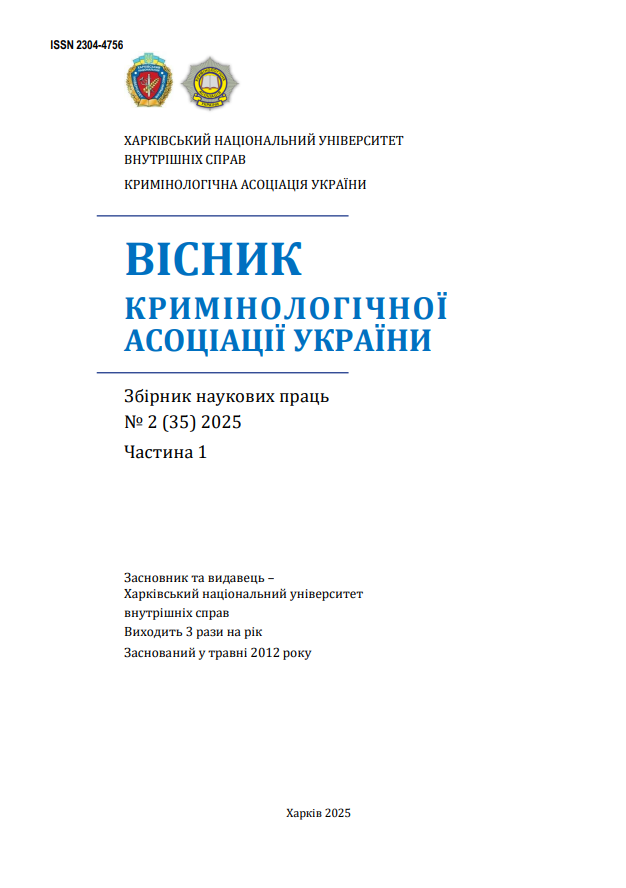POSSIBILITIES OF SPECIAL KNOWLEDGE IN PROVING A PERSON’S GUILT IN COMMITTING A CRIMINAL OFFENSE
DOI:
https://doi.org/10.32631/vca.2025.2.13Keywords:
criminal proceedings, pre-trial investigation, evidence, crime, criminal offense, subjective side, guilt of a person, special knowledge, expert, specialistAbstract
The article examines the potential use of special knowledge in the process of proving a person’s guilt in committing a criminal offense. It highlights the importance of expert activity in establishing not only the factual circumstances of the event but also the subjective aspects of the crime—such as intent, motives, and the mental attitude of the person to his own actions – is emphasized. The emphasis is placed on the special importance of forensic psychiatric, psychological and psychological-psychiatric examinations, which, combining diagnostic and analytical functions to assess a person’s ability to understand the meaning of their actions, recognize their consequences, and control their behavior. The need for clear delineation of experts’ and specialists’ responsibilities, along with proper interpretation of research results— considering the standard of proof “beyond reasonable doubt”—is emphasized.The article discusses the regulatory framework governing expert activities in Ukraine and the importance of aligning with international practices concerning the accreditation of experts and the scientific validation of methods. It is argued that special knowledge in criminal proceedings is not only auxiliary but also essential for achieving a fair trial and ensuring the completeness, objectivity, and adversarial nature of the evidentiary process. A promising area for future research involves evaluating the admissibility of conclusions derived from polygraph testing, and their evidentiary value in specific procedural contexts.
Downloads
Downloads
Published
Issue
Section
License
Copyright (c) 2025 А.Г. ВУЙМА

This work is licensed under a Creative Commons Attribution 4.0 International License.

